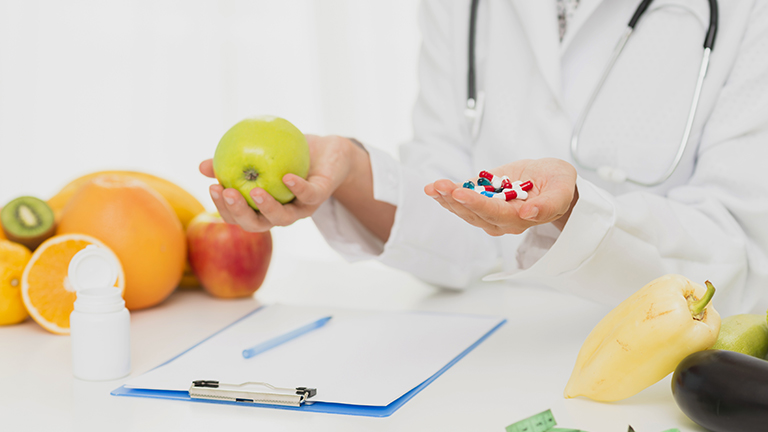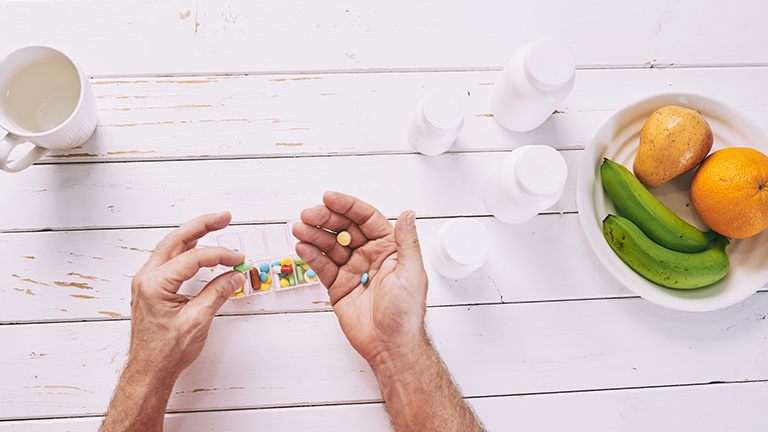Manage Cholesterol Without Medication: Cholesterol management has become one of the most pressing health priorities worldwide. Millions of people in the United States, United Kingdom, Canada, and across the globe are diagnosed with high cholesterol each year, and many immediately think medication is the only solution. While pharmaceutical treatments such as statins are effective, they are not always necessary as a first step. The truth is that in many cases, cholesterol can be effectively managed without medication through lifestyle changes, dietary improvements, and natural remedies.
Understanding cholesterol is the first step. Cholesterol is a fatty substance that plays a vital role in building healthy cells and producing hormones. However, when levels of low-density lipoprotein (LDL, often called “bad cholesterol”) become too high, and high-density lipoprotein (HDL, or “good cholesterol”) is too low, the risk of heart disease, stroke, and other cardiovascular problems increases.
The good news is that cholesterol can be managed naturally without medications if you adopt consistent, science-backed strategies. This guide explores how to lower LDL cholesterol, raise HDL cholesterol, and improve heart health naturally.
Why Cholesterol Balance Matters for Heart Health
Cholesterol imbalance is a silent condition that often goes unnoticed until it leads to serious complications. High LDL cholesterol can cause fatty deposits to build up in the arteries, narrowing them and restricting blood flow. This condition, called atherosclerosis, significantly raises the risk of heart attacks and strokes.
On the other hand, HDL cholesterol plays a protective role. It carries cholesterol away from the arteries and back to the liver, where it can be processed and eliminated. Maintaining the right balance between LDL and HDL is key to long-term cardiovascular health.
Research has shown that individuals who follow heart-healthy diets, exercise regularly, and manage stress effectively can reduce cholesterol naturally and avoid reliance on long-term medications.
[INSERT_ELEMENTOR id=”5108″]
Risks of High LDL and Low HDL Levels
When LDL cholesterol levels are elevated, the consequences can be life-threatening. The risk is not limited to older adults; young adults with poor diets, sedentary lifestyles, and chronic stress also face cholesterol-related challenges. Risks include coronary artery disease, peripheral artery disease, and even early cognitive decline, as restricted blood flow affects brain function.
Similarly, low HDL levels mean that excess cholesterol remains in the bloodstream, increasing the chance of arterial plaque buildup. Without enough HDL, the natural “cleanup system” of the body is compromised.
Therefore, addressing both LDL and HDL levels without depending solely on medication is essential for long-term well-being.
Diet Strategies to Manage Cholesterol Without Medication
Foods That Lower LDL Naturally
One of the most powerful ways to control cholesterol is through food. Certain foods directly impact how cholesterol is absorbed and processed in the body. High-fiber foods like oats, beans, lentils, and barley help lower LDL cholesterol by binding to it in the digestive system and carrying it out of the body.
Plant sterols and stanols, found in nuts, seeds, and fortified foods, block cholesterol absorption in the gut. Fatty fish such as salmon, mackerel, and sardines provide omega-3 fatty acids, which reduce triglycerides and support heart health.
Eating more fruits and vegetables adds antioxidants and soluble fiber, both of which help reduce LDL naturally.
Best Plant-Based Options for Heart Health
A plant-based diet has been proven to support cholesterol management. Legumes, soy products, flaxseeds, chia seeds, and avocados are excellent plant-based sources that promote healthy cholesterol levels. Unlike animal fats, these options provide essential nutrients without increasing saturated fat intake.
Research shows that individuals who eat more plant-based foods experience lower LDL cholesterol, higher HDL cholesterol, and reduced risks of heart disease. Even if you are not fully vegetarian, incorporating more plant-based meals can significantly improve cholesterol management.
Healthy Fats vs. Unhealthy Fats
Not all fats are bad for cholesterol. In fact, choosing the right types of fats is crucial. Unsaturated fats, such as those found in olive oil, nuts, seeds, and avocados, support healthy HDL levels and reduce LDL cholesterol.
On the other hand, trans fats and excessive saturated fats found in processed foods, fried snacks, red meat, and full-fat dairy increase LDL cholesterol and must be avoided. Swapping unhealthy fats for heart-healthy options is one of the simplest yet most effective strategies to manage cholesterol without medication.
Lifestyle Changes for Better Cholesterol Management
Importance of Regular Exercise
Exercise is one of the most effective natural methods to lower cholesterol. Aerobic activities such as walking, jogging, swimming, and cycling improve circulation, increase HDL cholesterol, and lower LDL cholesterol. Even moderate exercise, such as 30 minutes of brisk walking five days a week, has been shown to make a significant difference.
Strength training also plays a role. Building muscle mass through resistance exercises helps the body burn fat more efficiently, supporting healthy cholesterol levels.
Stress Reduction and Its Effect on Heart Health
Chronic stress contributes to higher cholesterol levels by triggering the release of cortisol, a hormone that increases fat storage and negatively impacts blood vessels. Stress also encourages unhealthy eating habits, lack of exercise, and poor sleep—all of which worsen cholesterol levels.
Practices such as meditation, yoga, deep breathing, and mindfulness not only reduce stress but also support overall heart health. Research shows that stress management can significantly reduce cholesterol levels naturally.
Sleep and Hormonal Balance for Cholesterol
Sleep plays an underrated role in cholesterol management. Poor sleep disrupts hormone balance, leading to higher LDL and triglyceride levels. Adults who sleep fewer than six hours per night are at higher risk of developing heart disease.
Prioritising seven to eight hours of quality sleep supports cholesterol balance, reduces stress, and strengthens cardiovascular health. Creating a consistent sleep routine, avoiding caffeine late in the day, and limiting screen time before bed all contribute to better cholesterol management.
Natural Remedies and Home Practices
Herbal Remedies and Natural Supplements
Herbal remedies have been used for centuries to support heart health. Garlic, for instance, has been shown to lower LDL cholesterol and reduce triglycerides. Green tea contains antioxidants called catechins, which support cholesterol reduction and improve blood vessel function.
Supplements such as omega-3 fish oil, psyllium husk fiber, and red yeast rice can also support cholesterol management, but they should be taken under medical guidance.
Daily Habits That Improve Heart Health
Simple lifestyle choices make a lasting difference. Drinking enough water, avoiding smoking, limiting alcohol, and maintaining a healthy weight are everyday practices that directly influence cholesterol levels. Consistency is key—small daily actions compound into long-term improvements.
Long-Term Cholesterol Management
Creating a Sustainable Heart-Healthy Lifestyle
Cholesterol management without medication is not about temporary fixes but about adopting lifelong habits. Sustainable changes such as eating whole foods, exercising regularly, and managing stress provide long-lasting benefits.
Tracking Progress Without Medication
Monitoring cholesterol levels through regular health checkups is essential. Tracking dietary habits, exercise routines, and weight also helps measure progress. Many people see significant improvement in cholesterol numbers within a few months of consistent effort.
When to Consult a Doctor for Support
While natural methods are powerful, it is important to consult a healthcare provider when cholesterol remains high despite lifestyle changes. Some individuals may have genetic predispositions, requiring medical support. A combination of natural strategies and professional guidance ensures the best outcomes.
Conclusion: Manage Cholesterol Without Medication
Managing cholesterol without medication is entirely possible for most people, provided they adopt consistent lifestyle changes, follow a balanced diet, and maintain daily habits that support cardiovascular health. By lowering LDL cholesterol, raising HDL cholesterol, and reducing triglycerides naturally, individuals can protect themselves from heart disease, stroke, and other chronic conditions.
This natural approach not only reduces dependency on medication but also improves overall health, energy levels, and longevity. Whether you live in the USA, UK, Canada, or elsewhere, these strategies apply universally, empowering people worldwide to take control of their heart health naturally.


